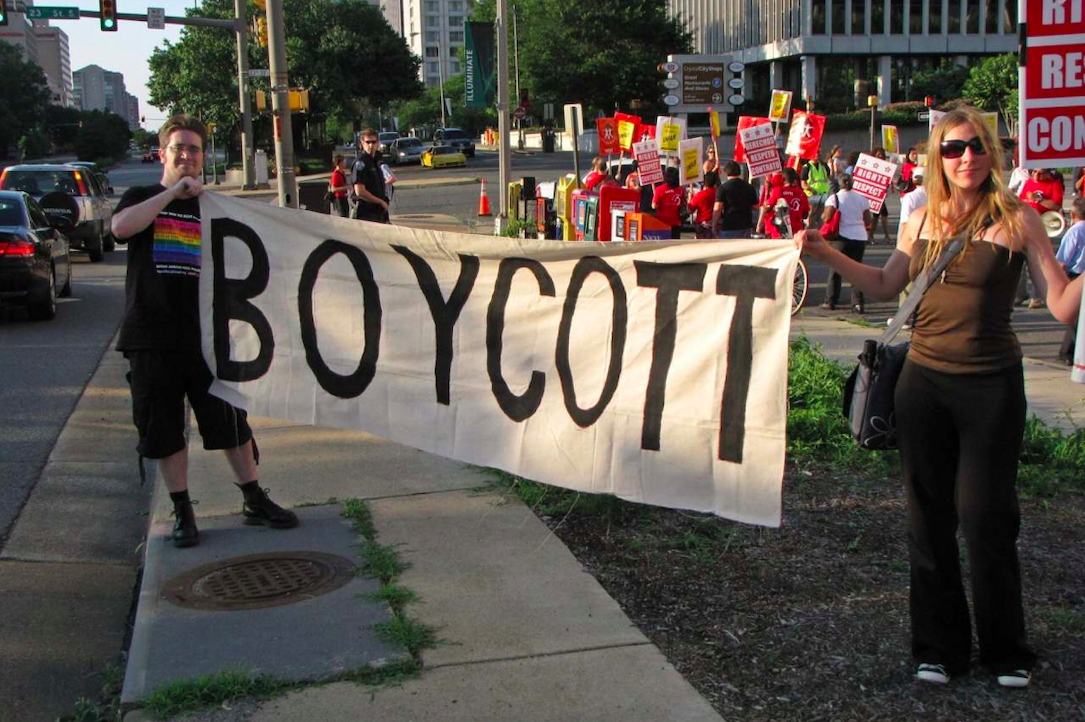Due to the ongoing conflict between Israel and Palestine in Gaza, many people have chosen to boycott corporations that invest money in Israel.
The current Gaza conflict, which has been going on for over a year, traces back to 1948 when hundreds of Palestinians fled to the Gaza strip to seek refuge. Since then, the people of Palestine have seen five wars.

Al-Jazeera
Surveys show one in three people are boycotting.
The sixth war surged on Oct. 7 when Hamas-led forces from Palestine gained access to Israel and caused a tragic loss of 1,200 lives, taking around 250 people hostage. Since then Israel has taken the lives of more than 40,000 innocent civilians. This conflict has raised a multitude of boycotts against companies due to their stance on the situation.
People have realized which big corporations have been affecting the war through financial contributions and have started a movement called Boycott, Divestment, and Sanctions (BDS). According to Time Magazine “BDS is a Palestinian-led non-violent movement that began nearly two decades ago to call for a boycott of Israeli and international companies it believes are complicit in violating Palestinian rights.”
The BDS movement chooses a company based on how much impact they have on the conflict and how likely they are to make an impact. The movement has made some impact on large corporations like Starbucks, who is now releasing popular staples like pumpkin spice lattes earlier than usual this year to gain back some of their lost consumers.

Noor Ain/THUNDERWORD
Starbucks location in Burien.
Al Jazeera reported that large chains like Starbucks and Mcdonalds have suffered quite a loss. From an end of the year report 2023 McDonald failed to reach the sale targets and Starbucks had to close several chains due to the loss. While the Starbucks CEO Laxman Narasimhan says “Our stance is clear. We stand for humanity,” there are no actions or claims showing that they stand with Palestine: resulting in the continuation of the boycott.
Despite the boycott, companies are still investing in Israel because it has access to a strategic market that can provide a way into the Middle East and beyond. While middle eastern countries are boycotting Israeli products they don’t make as big of an impact on the economy as the other parts of the world make a difference such as the USA.
Looking forward to the future, the investment in the war isn’t stopping but the consumers are becoming more aware of where their money is going; using apps like Boycat is helping them invest their money in a more ethical way. While it is a potential disruption to consumer’s lives, they don’t seem to mind it, knowing what’s happening in Gaza.

